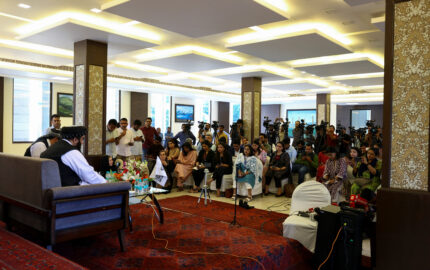James Comey’s reputation may never recover from a few decisions he made during the 2016 election cycle, and maybe it shouldn’t. His choices, though, weren’t materially different from the thinking used by most major media outlets to write stories based on hacked private email accounts that were filtered through WikiLeaks.
That reality underscores an ugly truth about journalism in the 21st century: that we are likely to repeat the mistakes made last year because we have yet to broaden our understanding of journalistic ethics beyond being responsible for the individual stories we craft and publish.
We have yet to broaden our understanding of journalistic ethics beyond being responsible for the individual stories we craft and publish
If we want to avoid being used as unwitting tools to undermine democracy going forward, we can no longer rely upon journalistic justifications that worked well in a pre-Internet world. It’s no longer enough to say, ‘My story passed the usual tests of accuracy and relevance.’ We must understand that what we do as individual journalists or media outlets from here on out will only be part of a mosaic of information that can quickly swamp any individual fact or claim.
What the FBI director felt compelled to do is a case in point that can be applied to journalism. In a vacuum, Comey did nothing wrong. There was an unprecedented level of public interest in the fate of an investigation into Hillary Clinton’s emails. Comey responded by taking the unprecedented step of not just saying the investigation had yielded nothing worthy of criminal charges, but that there was still recklessness involved. And because he told an aggressive GOP-controlled Congress that he would update them if anything changed, his letter in the waning days of the campaign also made sense–in a vacuum. On the face of it, he did nothing unethical.
But we know he wasn’t operating in a vacuum. We know that any statement from the FBI at a sensitive time in an election cycle can swing a tight race. Though we’ll never know with any certainty, Comey’s 11th-hour letter to Congress could have been the difference between Clinton receiving the roughly 80,000 additional votes (a rounding error in a presidential election) in three crucial states she needed to become America’s first woman president and Donald Trump being sworn in on January 20.
More From Issac Bailey
The media was in a similar dilemma with the trove of emails WikiLeaks had in its possession and, much as Comey did, we chose to act as though our individual stories would be published or broadcast in a vacuum. We knew the email trove would cause a massive imbalance in transparency between the two major party candidates. We knew the founder of WikiLeaks was a staunch Clinton opponent. We knew that WikiLeaks was timing the release of selective batches of emails to cause political damage. And we had been told by intelligence agencies that there was a good chance Russia was behind the leaks to either sow distrust in our election process or help Trump get elected. And yet, we chose to publish any way.
Our rationale, from an old-school journalistic standpoint, was sound and echoed by Pulitzer-prize winning journalists and editors at the most influential news organizations: If the information is accurate and deemed relevant, then it should be published, no matter the leaker’s motives.
That rationale is ethical and sound—in a vacuum. But when we leave no room for the exception, when we plow ahead knowing the damage we are causing, simply because we can cite a rationale that makes sense in most, but not all, situations, we must ask if we were any more ethical than Comey.
We knew the public record was already full of Clinton information culled over the course of a three-decade-long public career that had been documented maybe like no major party nominee before her. And that treasure trove of information was being expanded by the day, with exhaustive investigations into Clinton’s time as secretary of state. And we knew Trump had not complied with what had been a long-standing prerequisite in presidential politics, the release of his tax returns.
Further Reading
When Is It Ethical to Publish Stolen Data?
by Helen Lewis
Into that enormous imbalance, we not only allowed WikiLeaks, known to be hostile to one of the major presidential nominees, to drip information into the public bloodstream through our media organs, we allowed it to choose the timing. That’s unlike what happened with the Snowden files, in which a source gave all of his data to media outlets upfront and let them decide not only what would be published, but when.
The scary thing is that we seem to have little interest in figuring out how not to repeat what was a massive ethical error—choosing to amplify the publishing of private emails largely about the infighting of a particular political party instead of more carefully weighing the cost to our electoral process—in large part because so few of us seem to believe we did anything wrong. (What organization—private or public, media, government or corporation—would not be sullied if the private emails of its prime operatives were publicly aired?) Until we do, our democracy will be vulnerable to a smart leaker who knows how to selectively leak damaging data on anyone of their choosing—knowing the media is likely to pick up where we left off in 2016.


